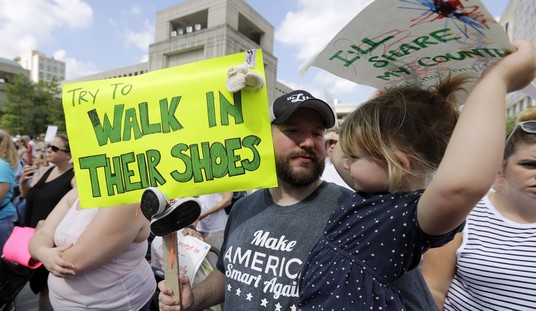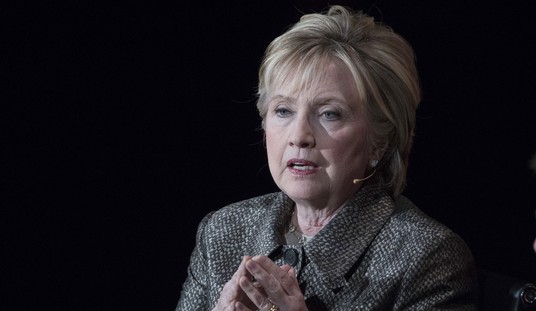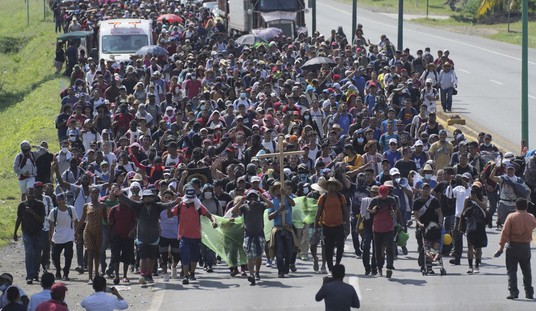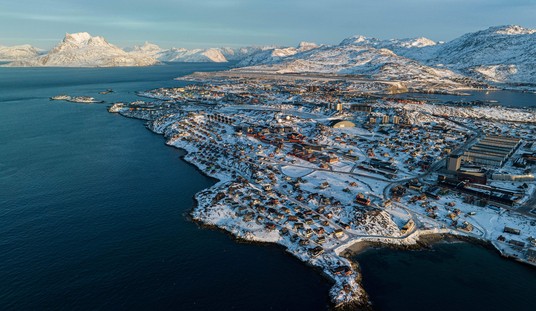Sen. John McCain (R-Ariz.) said Sunday that he would call Benghazi a cover-up “in the extent that there was willful removal of information, which was obvious.”
“They’re in the midst of a presidential campaign. The narrative by the Obama campaign is that Bin Laden is dead, the — al-Qaeda is on the run, not to worry about anything. And here comes this attack on Benghazi. And there are so many questions that are unanswered. We need a select committee. But for the president’s spokesman to say, well there was only words, or technical changes made in those emails, is a flat out untruth,” McCain said on ABC’s This Week.
The call for a special committee isn’t new, but the idea has been gaining traction since last week’s Benghazi hearing.
“I like Mr. Carney, but that — that’s just not acceptable for the president’s spokesman to say that to the American people when we now know any reference to active terror, any reference to al-Qaeda were removed from those talking points, and it was done at a deputy’s meeting just before Susan Rice went on television,” the senator continued.
“I’d call it a cover-up. I — I would call it a cover-up in the extent that there was willful removal of information, which was obvious. It was obvious. Mr. Hicks said in his testimony, his jaw dropped when he saw Susan Rice do that — I was on — I was on another Sunday morning show after Susan Rice, my jaw dropped. I said, look people don’t bring rocket-propelled grenades and mortars to spontaneous demonstrations.”
McCain said former Secretary of State Hillary Clinton “has played a role in this.”
“She had to have been in the loop some way. But, we don’t know for sure. But I do know that her response before the Foreign Relations Committee, who cares? Remember when she said, well who cares how this happened, in a rather emotional way? A lot of people care, I say with respect to the secretary of State,” he said.
Still, he added, he doesn’t yet know “what level of scandal, quote, unquote, this rises to.”
“I find it impossible to comprehend why on September 11, the day we all know is so important, when there have been numerous warnings about the security at that consulate, that we didn’t have forces that were capable of doing so. And over a seven and a half our period with all the assets we have in the region, we couldn’t have an F-16 at low altitude, fly over those people who were attacking our consulate? Another question is, why weren’t there forces capable of going to defend that consulate?” McCain said.
Sen. Jack Reed (D-R.I.) countered that it’s “absolutely not” a cover-up.
“I think what I would suggest in looking at the play- by-play, is what was going on was not so much the politics of electioneering, but the institutional sort of positioning. Victoria Nuland, who was representing the State Department, had a long career in public service. She’s not a partisan. In fact, she worked for Dick Cheney,” Reed said.
“I think this is the classic issue of interagency battle about who will say what. And at the end I think what you had was a very sort of consensus document that avoided all of the difficult issues.”
Reed said any talking points that have to be approved by every agency are “almost by definition in Washington something that is not as specific or as conclusive.”
“What they did, I think, was try in a very chaotic situation, to come up with points that they felt confident of. They didn’t want to go too far in two concepts. One, our intelligence resources or assets that you might not want to disclose. Second, there’s an ongoing investigation was just beginning. Those two factors also framed the response,” Reed said.
“But I think again, when you talk about this sort of political dynamic, when the president comes out and says quite quickly, with the authority of his office, this was an act of terror, the notion that we’re somehow trying to disguise this and make it something else, I think falls away very quickly.”









Join the conversation as a VIP Member